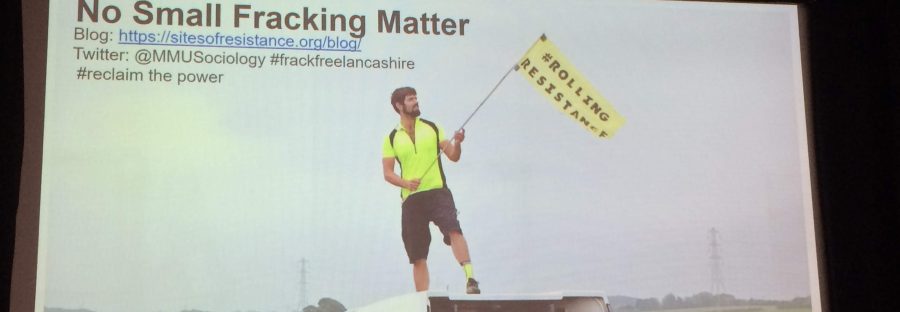‘Major implications’ nationwide as police crackdown on protests following three arrests at a fracking site
- ‘Parameters in which acceptable protests are defined have become increasingly narrow’
- Three imprisoned for protesting energy firm Cuadrilla’s fracking site in Lancashire
- Arrests being used as a deterrent against protestors
A police crackdown on anti-fracking demonstrations could have ‘major implications’ for protests nationwide, according to a leading academic.
Dr William Jackson, lecturer in criminology at Liverpool John Moores University, researches the policing of anti-fracking protests.
He co-wrote the Keep Moving! Report on Policing of the Barton Moss Community Protection Camp, which looked at the anti-fracking protest in Barton Moss in Eccles, and he is following the protests at Preston New Road in Lancashire where energy firm Cuadrilla recently began fracking.

Dr Jackson said: “It seems that the parameters in which acceptable protests are defined have become increasingly narrow – especially in relation to anti-fracking protests. We see an attempt by police nationally to construct all forms of civil disobedience and direct action protest as illegitimate, as violent and as unlawful.
“Anything that’s moved beyond a purely symbolic registry of opposition is constructed as criminal or extremism and there’s a really dangerous association there. [It] has major implications around fracking but has much wider implications for all forms of meaningful dissent in the UK.”

Simon Blevins, Richard Roberts and Rich Loizou were imprisoned after they climbed on lorries to protest Cuadrilla’s Preston New Road site in July 2017, but were freed on appeal after judges deemed their sentences “excessive”.
Dr Jackson was not surprised by the outcome of the court case.
He said: “The fact that people involved in that type of direct action have potentially felt the full force of the law is not a great surprise, especially when we look at the way in which acceptable protest has been constructed in recent years.”
His work suggests that at Barton Moss arrests were used against protestors as a deterrent and he thinks the same strategy is being employed at Preston New Road.
He said: “What’s going to be important is to try and track this long-term and try and see if the same tactics of mass arrests are being used at Preston New Road. Anecdotally what we hear on the ground is that they are, but it’s going to take an awful lot of hard work like we did with Barton Moss, because the crown prosecution service of Greater Manchester Police refused to give us that information so that nobody collects it.”

Fracking at Preston New Road was halted for the third time at the end of October due a 1.1 magnitude tremor.


